Spotlight
Learning to Lament
Published
2 years agoon

By Jessica Sanford
By nature, I tend to shy away from negative emotions, preferring a world where everyone is happy and there’s no conflict. (Yes, I do realize this kind of world does not exist this side of heaven, but one can always dream!) As a result of my desire to avoid all things negative, I have sometimes struggled to admit to myself, to God, or to others those moments when hurt or sadness or fear or anxiety or discouragement or even anger have invaded my heart. I have erroneously believed to do so made me appear weak or whiny or somehow un-Christian. (Nobody likes a weak or whiny Christian. Am I right?)
I have erroneously believed my “faith” obligated me to deal with my emotions quickly and move on, never really giving myself permission to “feel” for too long, absorbing the negative circumstance and continuing on as if everything were fine (when everything wasn’t fine). I felt the sting, but my reaction was more of a whimper rather than a shout. After all, Christians don’t despair; they might cry, but only a little. Or so I thought.
Apparently, Christians are also super-human.
These patterns worked – until they didn’t – and I have spent the past several months coming face to face with some places of sorrow and disappointment I had never given myself permission to fully feel. I call these places “pain spots.”
If we are honest, we all have pain spots, areas in our lives that for lack of a better word, stink! A difficult boss, a troubled marriage, a prodigal child, broken relationships, unfulfilled dreams, unfair treatment, loneliness, betrayal, a bleak medical prognosis, lingering anxiety, physical and mental exhaustion, financial hardship, deep sorrow, the loss of a loved one. The list is seemingly endless. What do we do with these pain spots and the emotions they invoke? Though not an exhaustive list, some unhealthy responses might include denial, avoidance, withdrawal, isolation, victimhood, lashing out, self-harm, and self-medicating.
The reality is that we are emotional beings who face an array of both positive and negative emotions every day. To deny our emotions is to deny our humanness. As I am learning, emotionally healthy people learn to lean in to their emotions rather than brush them aside. They learn how to manage their emotions in appropriate, God-honoring ways. They are willing to be honest about what they are feeling, and they are willing to take the steps necessary to walk in wholeness.
In her book How to Survive as a Pastor’s Wife, author Christine Hoover identified some of the challenges ministry leaders face. Though there are many joys, to be sure, there are also challenges. To ignore this fact would be dishonest. How can leaders navigate these inevitable challenges well? Hoover introduces a practice I had not considered. One way to process the hard places of ministry (and life) is through the practice of lament.
What exactly is lament? Lament can be defined as a passionate expression of grief or sorrow.
However, as Mark Vroegop points out in his book Dark Clouds, Deep Mercy: Discovering the Grace of Lament, “In the Bible lament is more than sorrow or talking about sadness. It is more than walking through the stages of grief. Lament is a prayer in pain that leads to trust.”i Vroegop goes on to describe biblical lament as “the honest cry of a hurting heart wrestling with the paradox of pain and the promise of God’s goodness.”ii Or put another way, “Lament is how you live between the poles of a hard life and trusting in God’s sovereignty.”iii
Learning how to cultivate the skill of lament is healthy and biblical, and it can be a powerful tool in helping us process our emotions and pain spots. The Psalms are full of laments, making up about one third of the entire book.iv And an entire book of the Bible, Lamentations, is dedicated to lament.
David expressed lament in Psalms 13 (NLT):
O Lord, how long will you forget me? Forever?
How long will you look the other way?
How long must I struggle with anguish in my soul,
with sorrow in my heart every day?
How long will my enemy have the upper hand?Turn and answer me, O Lord my God!
Restore the sparkle to my eyes, or I will die.
Don’t let my enemies gloat, saying, “We have defeated him!”
Don’t let them rejoice at my downfall.But I trust in your unfailing love.
I will rejoice because you have rescued me.
I will sing to the Lord
because he is good to me.
Clearly, we don’t live in a continual state of lament. There is a greater purpose to lament than merely grieving for grieving’s sake, so how do we practice biblical lament?
- Turn toward God in prayer. The turning is important because it signifies our desire to look to God for help. When hope feels distant, we turn to the God who hears our cries and sees our tears. “O, Lord, you hear the desire of the afflicted; you will strengthen their heart; you will incline your ear” (Psalm 10:17, ESV). “You keep track of all my sorrows. You have collected all my tears in your bottle. You have recorded each one in your book” (Psalm 56:8, NLT).
- Talk to God about what’s wrong. Tell Him all of it! He already knows what’s taking place inside our hearts, but He is waiting for us to voice it to Him. This is where keeping a journal can be especially helpful. (Sometimes it helps me to get my thoughts down on paper before trying to verbalize them.) It’s important not to rush this step. Lament can feel unnatural because it requires us to sit with our feelings for longer than we are often comfortable.
- Trust in God. Keep moving toward trust by asking God to help you get there. “Strengthened confidence in God’s trustworthiness is the destination of all lament.”v Lament is not a quick fix; rather, it’s a journey toward deeper faith and trust in God. And while our circumstances may not change, through lament “God redirects our gaze” and reminds us of His goodness right in the middle of our pain.vi
I have been practicing lament, voicing my pain spots to the Lord, and allowing Him to redirect my gaze. It’s messy and raw and profound and completely out of my comfort zone. (Did I mention I don’t like negative emotions?) I only wish I had discovered the skill of lament much, much earlier.
Perhaps you have some pain spots you need to bring before the Lord? Biblical lament can be one tool in helping you navigate those hard places. I’d encourage you to get some tissues and give it a try. Blessings, friends!
For a fuller understanding of biblical lament, Mark Vroegop’s book, Dark Clouds, Deep Mercy is very helpful.
[i] Mark Vroegop, Dark Clouds, Deep Mercy: Discovering the Grace of Lament (Wheaton, IL: Crossway, 2019), 28.
[ii] Vroegop, Dark Clouds, Deep Mercy, 26.
[iii] Vroegop, Dark Clouds, Deep Mercy, 21.
[iv] www.gotquestions.org/lament
[v] Mark Vroegop, Dark Clouds, Deep Mercy Devotional Journal (Wheaton, IL: Crossway, 2022), 14
[vi] Christine Hoover, How to Thrive as a Pastor’s Wife (Grand Rapids: Baker Books, 2022), 90.
About the Author
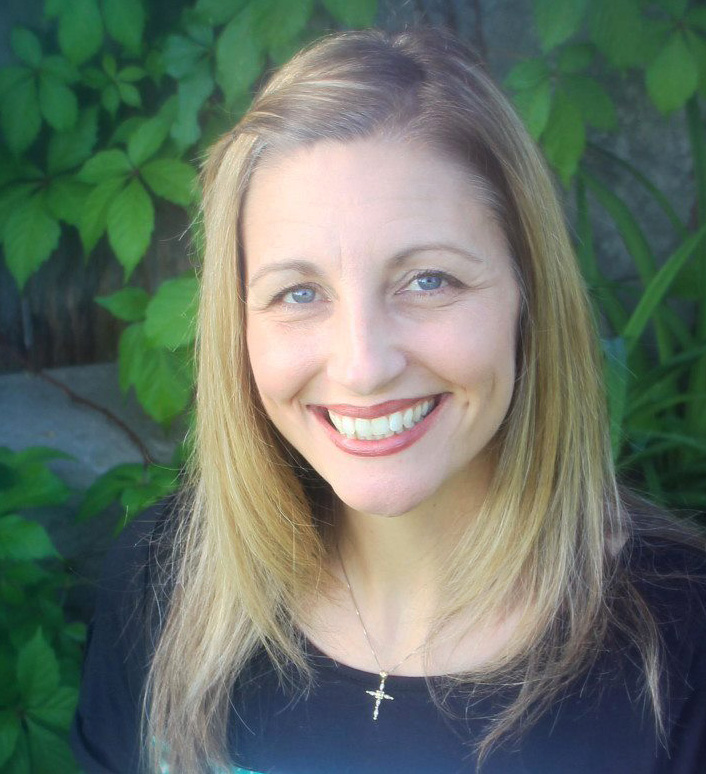
Jessica Sanford has served alongside her husband, Matt, in ministry for over two decades. She is a licensed coach with Leader Breakthru, Inc. and is passionate about making disciples and helping facilitate the spiritual transformation of those not content with the status quo. She also loves seeing women in ministry, especially other pastors’ wives, realize and step into their unique calling.

Spiritual direction…hmmm, sounds like what I get from the Holy Spirit when I pray, so why would I need to meet with a spiritual director when I can do this on my own? Seems unnecessary, right? Not to mention, I’m a guy; we never ask for directions.
That was my thinking a few years ago, until the day I got a call from another minister who was training to be a spiritual director. She needed to log a certain number of practice hours to finish her training, and she asked if I would be her “guinea pig.”
The call had “coincidentally” come in the middle of a challenging season; my pastoral duties felt relentless, and I was going through a profound life change. I felt empty inside as I wrestled with a nagging question: “Am I really hearing God clearly?” Unable to talk through my struggle with very many people, I had been feeling spiritually stuck. The person calling was someone I trusted, so I agreed to be a part of her training process. I thought I was helping her out, but little did I know this decision would stand as a cornerstone of my spiritual and mental health moving forward.
Spiritual direction is like having a wonderful (dare I say, sacred) friend who walks alongside you and gently guides you to notice and respond to the presence of God in your life.
Spiritual direction is like having a wonderful (dare I say, sacred) friend who walks alongside you and gently guides you to notice and respond to the presence of God in your life. Believe it or not, even the best of us can miss Him in the middle of our emotional and mental upheavals. Unlike traditional counseling or mentorship, spiritual direction focuses on deepening our relationship with God, helping us become more aware of His presence in our everyday experiences.
A Transformative Encounter: Experiencing the Father Three Ways
There’s one spiritual direction session that particularly stands out in my mind. My mom had just passed away, and my dad was in the final stages of his life. It had been a tough year of loss, and I was doing my best to keep it together. As I shared with my spiritual director, she made a suggestion. She said, “Gary, take the next ten minutes to sit before the Father and ask Him what He wants to say to you in this season.”
I muted the microphone, sat in silence, and stared out the window of my office into my backyard. It was a beautiful day, and the wind was rustling through the trees. Things moving by some unseen force. As I sat there, God reminded me of three snapshots (memories) with my dad. The first was a memory of being at the beach with him when I was four and his taking me into the deep water. I remember protesting that I didn’t want to go out there but also feeling safe because I was held tightly in my father’s arms. The second was a memory of when I was twenty and we took a trip together. It was on that trip that I felt my father, through his actions, take his mantle of authority and leadership and place it on my shoulders. The third snapshot wasn’t a true memory but a glimpse into the future. I was about to visit my dad in a month – it was to say goodbye as he was in the final stages of life on earth. My agenda was simple: I was just going to spend time with Dad.
In those pictures, with the wind blowing through the trees, the Father used my father to help me encounter Him. I’ll never forget the three things God whispered to me as I pondered those three snapshots:
Gary, I’m with you; you’re safe.
Gary, I’ve given you everything you need to fulfill what I’ve called you to do; I trust you.
Gary, all I desire is for you to spend time with me and enjoy my presence.
Those past and future joys were a reminder from my heavenly Father that I could take the path ahead because He was with me. I’m not sure I would have had such a profound experience had it not been for the preceding conversation with my spiritual director and our subsequent debrief.
Integrating Spiritual Direction into Pastoral Ministry
Moments in this and following sessions have been a game changer for me, helping me become a better leader and follower. I now approach decisions with a greater sense of grounding, choosing to rely on prayerful discernment and feedback from someone who’s spiritually mature and not emotionally tied to the situations. I’ve also learned to listen better, not just to God but also to people.
Spiritual direction has been a transformative experience for me, helping me grow both personally and professionally.
Spiritual direction has also been a huge help with my mental health. Regular sessions provide a sanctuary from the incessant demands of ministry and allow me to process those stressors in a safe context. I’ve learned to be more resilient, thanks to the reflective exploration of my spiritual journey, and I feel more balanced and purposeful.
If you’re a minister who hasn’t tried spiritual direction yet, I highly recommend it. Here are a few things to keep in mind:
- Find a spiritual director who’s trained to help others on their spiritual journey.
- Make sure you prioritize regular meetings. Consistent engagement allows for a deeper unfolding of your spiritual narrative and allows for sustained growth.
- Be open and vulnerable. Don’t be afraid to talk about the good and bad parts of your spiritual life.
Spiritual direction has been a transformative experience for me, helping me grow both personally and professionally. Remember, we all need help sometimes.
About the Author

Gary Kahn
Gary Khan was born on the island of Trinidad in the Caribbean. He moved to America when he was twenty to pursue his education and calling to be a pastor. He met his wife DeLaine at Eugene Bible College (now New Hope Christian College) and upon their graduation, they were married and began working at Desert Streams Church in Santa Clarita, CA. After thirty-two years as a pastor, Gary became an Executive Director of Operations for Marketplace Chaplains. He is the author of devotionals including Reset and Greater and his most recent book, That Didn’t Turn Out the Way I Thought.

On the fifth day of creation, our wonderful God showed himself in a brand new way. He began to create the living creatures that walk among us. This expression of His creation has shown itself throughout history; from Noah’s dove, to Balaam’s donkey, to Jonah’s whale and Daniel’s lions, God has continued to use animals in His grand plan and purpose.
We can still use these animals as a metaphor for God’s love and guidance. One notable example comes from Bob Sjogren’s book Cat and Dog Theology: “A dog says, ‘You pet me, you feed me, you shelter me, you love me, you must be God.’ A cat says, ‘You pet me, you feed me, you shelter me, you love me, I must be God.’”
As true as this may be, something wonderful happens when the molds break.
[God] certainly doesn’t want to drag us from one destination to the next. He would rather we follow Him willingly, eager to remain in His presence.
In our family, we recently experienced an interesting phenomenon when it came to our pets. To understand the story better, you need to understand our animals. Ralphie is our young, spirited Maltipoo. He has never met a stranger he didn’t love. He is sweet, loyal and in many ways the ideal companion.
Then we have our chihuahua, Sally. We found Sally roaming our neighborhood in 2014 with no tags and no microchip. She had obviously been mistreated, and when I took her to the vet, they found so many things wrong with her that I was advised, “Don’t be in a huge hurry to find her owner.”
We cleaned Sally up, and two weeks later she was legally ours. While she is affectionate to us and our kids, to this day, if I lift my hand to give her a pat on the head, she winces as if I am going to hit her (something I have never done and never intend to do).
Ralphie and Sally’s unique natures show themselves on our nightly walk around the neighborhood.
Ralphie tries his hardest to pull on the leash and run ahead. He so desperately wants to lead whoever is holding the leash that he nearly chokes himself on his collar. (We’ve had to switch to a harness.) He is unaware that he is only eight pounds, and his actions make little to no difference in the direction we are going.
Sally, however, must be practically dragged throughout the walk. She is timid and afraid to take a step that she isn’t sure is safe.
It’s quite a sight to have such different dogs reacting to the same thing.
Witnessing this phenomenon gave me pause, and I couldn’t help but think what a picture this is for the diverse ways we respond to the Holy Spirit’s leading in our lives.
So many people are like Ralphie. They try to tell God where they want to go without any regard to His guidance. They would rather choke themselves on their own will than listen to what He has to say. Others are like Sally and struggle to fully trust the Lord. For them to move, the Holy Spirit must practically drag them to the next place.
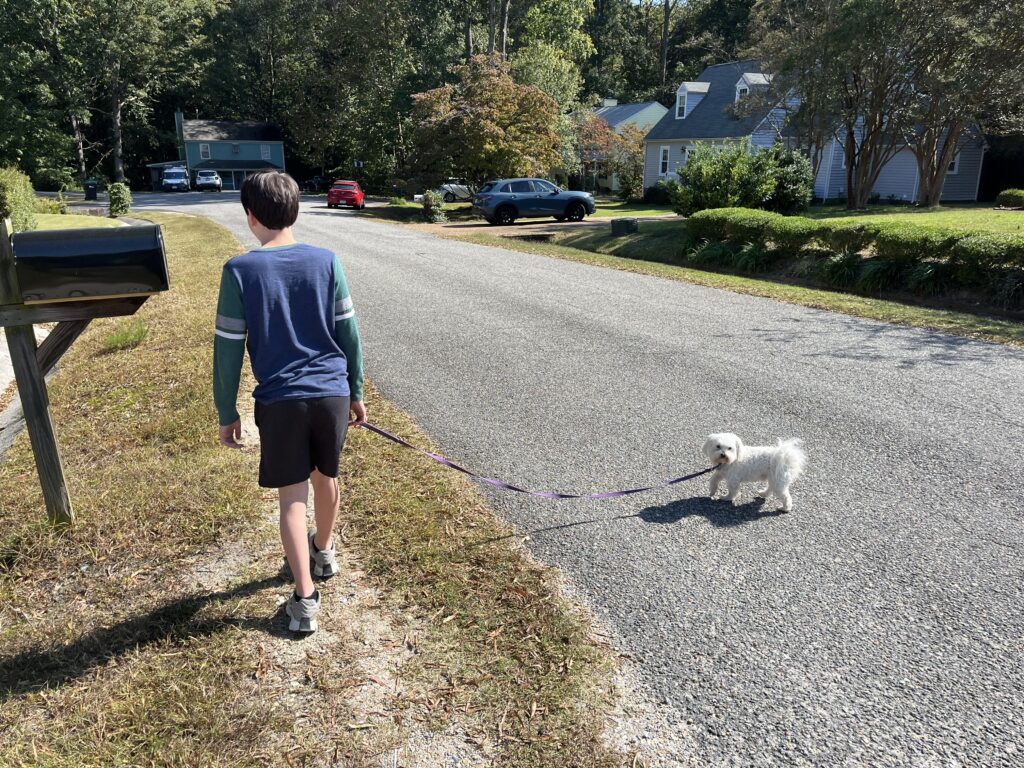
It sounds like a simple premise, but so many followers of God fall into these two opposite extremes. People miss their destinies when they act like Ralphie and Sally.
But there is another pet in our household whom I have not told you about. His name is Caesar, and he is an old, wise cat. We got Caesar the year we were married, and he lived up to his noble name every chance he got. Years ago, on our nightly walks with the dogs, Caesar began doing something amazing.
By his own free will, he would simply follow us on our walks. No need for a leash. No need for us to coax him. He just followed our gentle guidance every night for the mere purpose of being with us. Every now and then we would have to call his name, but he was always nearby.
I believe that in a world full of Ralphies and Sallys, God would rather we be like Caesar. The Lord doesn’t want us to tell Him where we are going rather than let Him lead, and He certainly doesn’t want to drag us from one destination to the next. He would rather we follow Him willingly, eager to remain in His presence.
In Matthew 8:18-22, two men express a desire to follow Jesus. The first is overly eager, not knowing what he is getting himself into. Jesus gives him a stern warning, explaining that he doesn’t know what he’s asking. The second man hesitates and says he needs to bury his father first. We never learn the fate of either man, but I hope they both abandoned their natural tendencies and learned to faithfully follow.
Whether you struggle with being too aggressive on your journey with God or whether you’re entirely too scared to take another step, I believe we can all grow in learning to be led
After sixteen years of being our cat, Caesar died peacefully this past March, but not before we had gotten a kitten named CJ. CJ is full of life and extremely playful. She was always so intrigued by our old friend Caesar that she started following him everywhere he went, even if it meant a walk around our neighborhood.
Caesar indirectly made a disciple with our young kitten, who now follows us on our walks every night. Despite how aggressive Ralphie wants to be or how timid Sally is, we now have CJ, just following along wherever we go.
Whether you struggle with being too aggressive on your journey with God or whether you’re entirely too scared to take another step, I believe we can all grow in learning to be led. If we will stay close to Jesus, we cannot help but fulfill His destiny for our lives.
About the Author
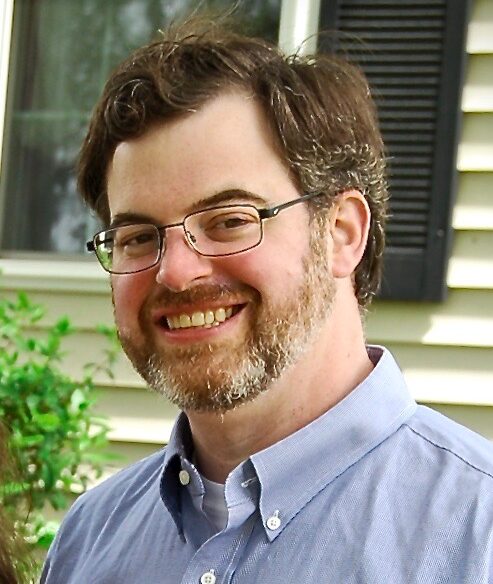
Bill Francavilla
Bill Francavilla is the lead pastor at Living Hope, an Open Bible church in Williamsburg, Virginia. Having lived in Virginia nearly his entire life, he attended Lynchburg College, where he studied history and theater. In 2017 Bill received his master’s degree in theological studies from Liberty University. He has been active in missions to Mexico, Dominican Republic, and Cuba. He and his wife, Jessica, have four children: Alex, Liam, Rita Grace, and Gino.

I am Shane Blackledge, and my wife Amber and I are the founding pastors of Cultivate Church in St. Louis, Missouri. My story is one of transformation and God’s grace, showing how He can use anyone to build His kingdom.

I was born in Colorado at the Air Force Academy Hospital. My father served in the Vietnam War, and while stationed in Taiwan, he met my mother and they got married. When I was six, my parents separated, and my mother moved back to Taiwan, leaving me devastated. As a kid, I faced racism and extreme poverty. I battled depression, anxiety, and thoughts of suicide. I started smoking and drinking at eight years old, joined a gang at age thirteen, and was using meth daily by the time I was fourteen.
At age seventeen, I was arrested and sentenced to thirty years in prison for selling drugs. I found myself in my jail cell wanting to end it all. On my night stand I found a Gideon Bible, and I opened it right to John 3:16. As I sat there reading, I realized I was a sinner, but that God created me and I had a purpose to live. I repented and asked Jesus to forgive me. I felt the Father’s love and the presence of the Holy Spirit in an indescribable way.
After my release, I struggled transitioning back into society (finding a job, paying rent, and finding a church that would accept me). I was discouraged and soon relapsed on meth. During the years of my addiction, I was sent to five prisons and was incarcerated for over six years. In 2006, after nearly dying from an overdose, I woke up from a coma and realized God had saved me from death. That day I fully surrendered to Christ, and that’s when my real transformation began.
In 2006, after nearly dying from an overdose, I woke up from a coma and realized God had saved me from death
God restored what addiction had taken from me. I have now been clean from meth for seventeen years. In 2013, I married Amber. We started attending Waverly Life Church, served as youth leaders, and eventually started a Celebrate Recovery program. In 2022, God called us to plant Cultivate Church in St. Louis, Missouri. We resigned from all ministries and jobs and sold our home. In April of 2023, we started house church gatherings which quickly grew in Christ and numbers. We launched our first Sunday gathering in October of 2023.
Today, we are a church without walls, modeled after the early church in Acts. We have regular church gatherings geared towards discipleship, street ministry, addiction recovery, Christian hip-hop events, prison ministry, and nursing home visits. We work with local treatment centers and recovery programs to support and mentor people. We have partnered with churches and ministries to organize monthly inner-city mission trips.
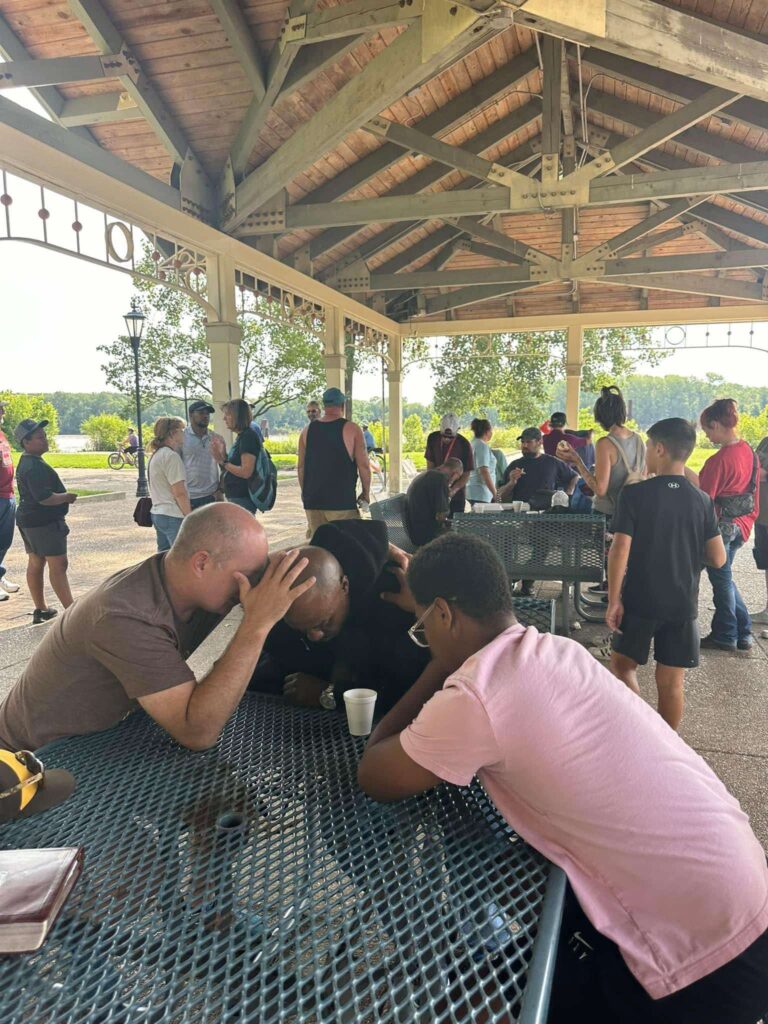
One way God has used my story is with my podcast: “Kingdom Minded,” which streams into 1000 prisons across the country on over one million inmate tablets. In partnership with the Edovo learning app, the podcast focuses on sharing testimonies and teaching Biblical principles.
Looking back, I am amazed at what God has done. In just a year our church has grown from a small group in our living room to a thriving community, passionate about sharing God’s love. Amber and I are excited about the future. We believe God is just getting started with Cultivate Church.
He can use anyone, even a former addict and convict like me, to build His kingdom.
My story and the story of Cultivate Church are really about God’s faithfulness. He can use anyone, even a former addict and convict like me, to build His kingdom. All the glory goes to Him.
To donate toward our prison ministry and homeless outreach, visit wearecultivatechurch.org or check out our Blessing Bags Gift Registry at HERE.
About the Author
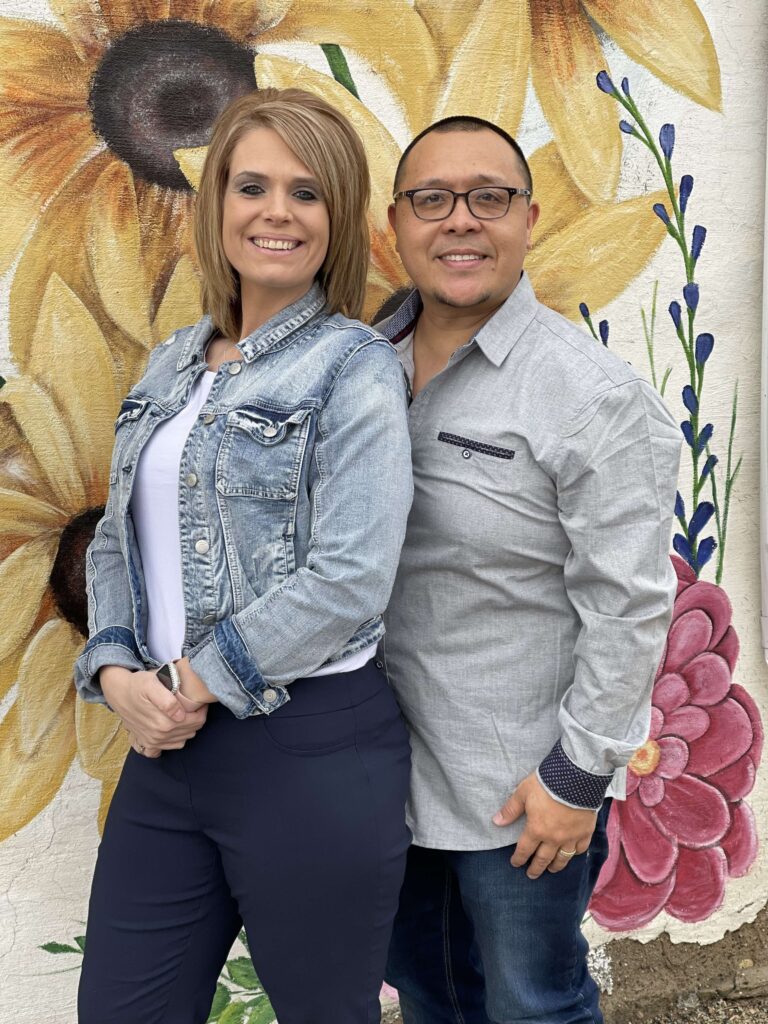
Shane R. Blackledge
Shane R. Blackledge is the co-founder and senior pastor of Cultivate Church. He and his wife Amber started Cultivate Church in their home in 2023. Today, the church is known for spreading the Gospel and being the church without walls. Shane’s podcast, “Kingdom Minded,” is available in over 1000 prisons on inmate tablets on the Edovo Learning App. Through testimonies and Bible principles, the podcast aims to teach, inspire, and equip Christians to live their best life now. Shane is an author and speaker, and his books From Prison to Purpose and Overcoming Codependency are available on Amazon. Shane and Amber have four children and live in St. Louis, Missouri.







